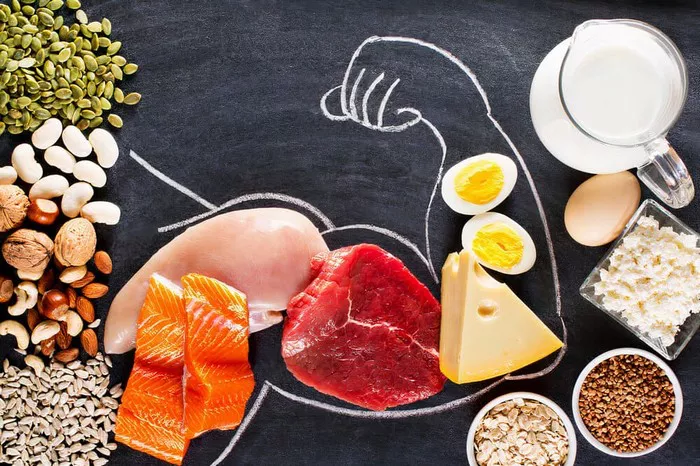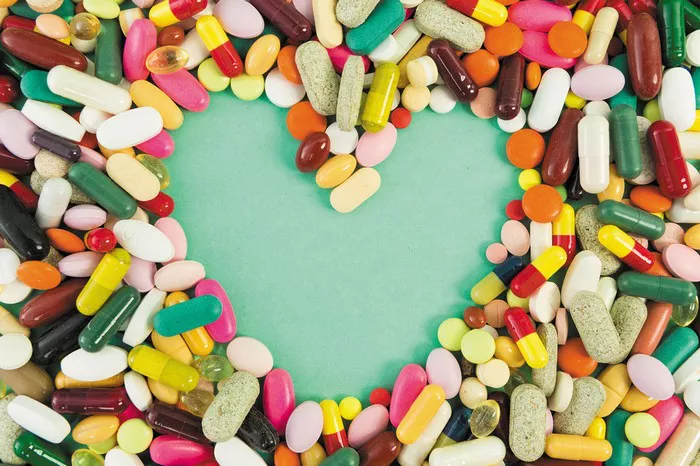Gaining muscle while in a calorie deficit is a common goal for individuals looking to shed body fat while simultaneously improving their physique. However, achieving this balance can be challenging, as it requires careful attention to both nutrition and training strategies. One key factor in preserving and building muscle mass during a calorie deficit is protein intake. In this article, we’ll explore the importance of protein for muscle growth in a calorie deficit and provide guidance on how much protein you should consume to support your goals.
Understanding Muscle Growth and Calorie Deficits
Before delving into the specifics of protein intake, it’s important to understand the relationship between muscle growth and calorie deficits. Muscle growth, or hypertrophy, occurs when the body is in a state of positive protein balance, meaning that protein synthesis (the process of building new muscle tissue) exceeds protein breakdown (the process of breaking down existing muscle tissue).
In a calorie deficit, where energy intake is lower than energy expenditure, the body may turn to stored fat for fuel, leading to fat loss over time. However, in the absence of sufficient energy from food, the body may also break down muscle tissue for energy, potentially compromising muscle mass and strength.
To mitigate muscle loss and promote muscle growth in a calorie deficit, it’s essential to provide the body with adequate protein, along with a well-balanced diet and appropriate training stimulus.
The Role of Protein in Muscle Growth
Protein is often referred to as the “building block” of muscle, as it provides the essential amino acids necessary for muscle repair, recovery, and growth. When you engage in resistance training or other forms of exercise, you create micro-tears in your muscle fibers. In response to this stimulus, the body repairs and rebuilds the damaged muscle tissue, leading to muscle growth and adaptation.
To support this process, it’s crucial to consume enough protein in your diet to provide the amino acids needed for muscle repair and growth. Protein also plays a role in satiety, helping you feel full and satisfied after meals, which can be particularly beneficial when you’re in a calorie deficit and may be experiencing hunger or cravings.
Determining Your Protein Needs
The amount of protein you need to support muscle growth in a calorie deficit can vary depending on factors such as your body weight, body composition, activity level, and goals. However, several guidelines and recommendations can help you determine your protein needs:
1. Protein Recommendations for Muscle Growth: While individual protein needs may vary, research suggests that consuming between 1.6 to 2.2 grams of protein per kilogram of body weight per day (g/kg/day) may be beneficial for maximizing muscle growth, particularly during periods of calorie restriction. For example, a person weighing 70 kilograms (154 pounds) might aim to consume between 112 to 154 grams of protein per day.
2. Consider Your Activity Level: If you engage in regular resistance training or other forms of exercise, your protein needs may be higher to support muscle repair and recovery. Individuals who are more active may benefit from consuming protein closer to the higher end of the recommended range.
3. Body Composition Goals: If your primary goal is to lose body fat while preserving muscle mass, consuming higher amounts of protein may be advantageous. Protein has a higher thermic effect compared to carbohydrates and fats, meaning that it requires more energy to digest and metabolize, potentially enhancing fat loss while sparing muscle tissue.
4. Spread Protein Intake Throughout the Day: To optimize muscle protein synthesis, it’s beneficial to distribute your protein intake evenly throughout the day, rather than consuming large amounts of protein in a single meal. Aim to include a source of protein with each meal and snack to provide a steady supply of amino acids to your muscles.
5. Monitor Your Progress: Pay attention to how your body responds to your protein intake and adjust as needed based on your progress. If you’re not seeing the desired results, you may need to experiment with increasing your protein intake slightly to see if it positively impacts your muscle growth and recovery.
Sources of Protein
Meeting your protein needs while in a calorie deficit can be challenging, but there are plenty of high-quality protein sources to choose from. Some examples include:
1. Lean meats such as chicken, turkey, beef, and pork
2. Fish and seafood such as salmon, tuna, and shrimp
3. Eggs and egg whites
4. Dairy products such as Greek yogurt, cottage cheese, and milk
5. Plant-based sources such as tofu, tempeh, lentils, beans, and legumes
6. Protein supplements such as whey protein powder, casein protein powder, and plant-based protein powders
Including a variety of protein sources in your diet can help ensure that you’re getting a complete range of amino acids to support muscle growth and repair.
Final Thoughts
While gaining muscle in a calorie deficit presents unique challenges, it’s entirely possible with the right approach to nutrition, training, and recovery. Adequate protein intake is a crucial component of any muscle-building plan, particularly when you’re in a calorie deficit and may be at risk of muscle loss. By consuming enough protein to support muscle growth, distributing your protein intake evenly throughout the day, and choosing high-quality protein sources, you can maximize your chances of achieving your muscle-building goals while in a calorie deficit. Remember to listen to your body, monitor your progress, and adjust your protein intake as needed to support your individual needs and goals. With dedication, consistency, and proper nutrition, you can build and maintain muscle mass even in the face of a calorie deficit.
[inline_related_posts title=”You Might Be Interested In” title_align=”left” style=”list” number=”6″ align=”none” ids=”6614,6611,6605″ by=”categories” orderby=”rand” order=”DESC” hide_thumb=”no” thumb_right=”no” views=”no” date=”yes” grid_columns=”2″ post_type=”” tax=””]
































